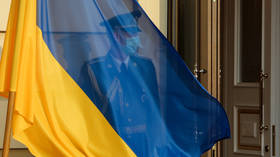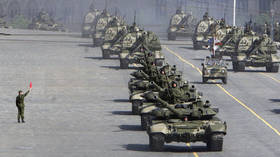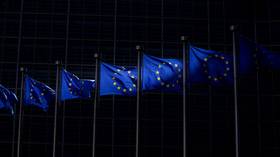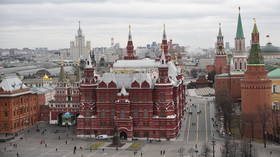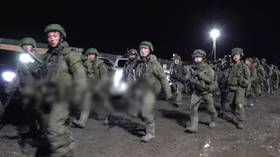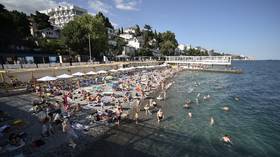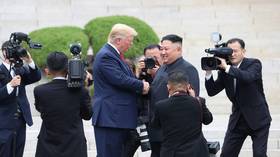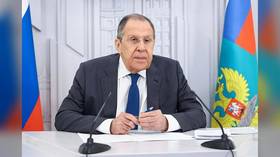Russia has a new secret weapon in its standoff with the West
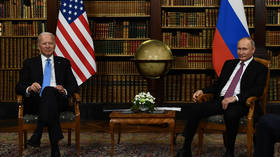
This article originally appeared in Kommersant.
Last Friday, Russian President Vladimir Putin had a phone call with his French counterpart, Emmanuel Macron, who became the first Western leader to hear the Kremlin’s reaction to the US and NATO responses to the security guarantees Moscow has recently demanded.
Putin pointed out that Washington and the US-led military bloc had “failed to take into consideration Russia’s security concerns.” However, it looks like the Kremlin is no hurry to produce the promised “military-technical” response. Instead, Moscow clearly plans on deluging the West with further correspondence and diplomatic overtures.
The Kremlin’s press service reported that the two presidents had held an extensive telephone conversation that focused on the issue of providing Russia with long-term and legally binding security guarantees. Putin told Macron that “the Russian side would carefully study the written responses to the draft agreements on security guarantees received from the United States and NATO on January 26, after which it would decide on further action.”
Moscow's version of the talks also insists that Putin informed his French counterpart that “the US and NATO responses did not address Russia’s fundamental concerns.” These include stopping NATO expansion, not deploying assault weapons near Russia’s borders, and rolling back NATO’s military capacity and infrastructure in Europe to where they were in 1997, when the NATO-Russia Founding Act was signed.
These and other demands were presented in two draft treaties that Russia passed to the Biden administration and Washington’s European allies in December 2021. At about the same time, Putin reiterated Russia’s threats to take “military-technical measures” if NATO and the US kept on ignoring the nation’s primary concerns.
However, Moscow has also made it clear that it continues to put its faith in a diplomatic solution. As part of the Kremlin’s diplomatic efforts, Russian Foreign Minister Sergey Lavrov is to send a letter to the 57 member states of the Organization for Security and Co-operation in Europe (OSCE), including the US, seeking clarification of their position on the principle of “indivisibility” in Euro-Atlantic security, as described in the OSCE’s 1999 Istanbul Declaration and the 2010 Astana Declaration.
In his statement to the press of January 27, Lavrov said, “This principle was formulated very clearly. It includes two interconnected approaches. The first is the freedom of states to choose military alliances. The second is the obligation not to strengthen their security at the expense of the security of other states.
“In other words, the freedom to choose security arrangements is conditioned by the pledge to respect the security interests of any other OSCE state, including the Russian Federation.”
According to Lavrov, NATO is trying to spin the matter by putting an emphasis on the first approach in saying Ukraine is free to join the alliance despite Russia’s objections while keeping silent in regard to the second . “We will now focus on getting clarity regarding this hypocritical position of our Western partners,” he concluded.
In response to a question from Kommersant that was asked during the online press briefing on January 28, US Ambassador to the Russian Federation John J. Sullivan said, “Speaking on behalf of myself, as someone who has undertaken the exercise recently to go back and reread all of the relevant documents, the overriding principle that comes out of those documents is the protection of national sovereignty, the right of a country to determine its own security and its own security alliances.”
According to Ambassador Sullivan, to use the concept of indivisible security in such a way as to prevail over the right of another country to determine its own path for national security is unacceptable.
“Imagine if Ukraine said Russia needs to withdraw from the CSTO [Collective Security Treaty Organization] because it – Ukraine – feels threatened by what Russia has done. That’s just not the way nations conduct business together, particularly under the agreements that the United States and our allies and partners and Russia – Russia, and before it the Soviet Union – agreed to over the decades with the fundamental principle of respect for national sovereignty,” the ambassador continued.
Kommersant studied the documents in question and came to the conclusion that they allow some room for interpretation. For example, the 1999 Istanbul Document states the following (and the Astana Document repeats a lot of it): “Each participating State [of the OSCE] has an equal right to security. We reaffirm the inherent right of each and every participating State to be free to choose or change its security arrangements, including treaties of alliance, as they evolve. Each State also has the right to neutrality. Each participating State will respect the rights of all others in these regards. They will not strengthen their security at the expense of the security of other States. Within the OSCE, no State, group of States or organization can have any pre-eminent responsibility for maintaining peace and stability in the OSCE area or can consider any part of the OSCE area as its sphere of influence.”
In any case, Moscow has made it clear that it wants to maintain a dialogue with the West and avoid confrontation. This likely has to do with the US’ and its European allies’ willingness to help pressure Ukraine’s leadership into complying with the Minsk agreements as a roadmap to settling the crisis in the Donbass – primarily the part that prescribes that the government should establish direct dialogue with the rogue Donetsk and Luhansk Republics and accord the Donbass special legal status.
On January 26, after a six-month break, Paris saw envoys from France, Germany, Russia, and Ukraine meet for a new round of Normandy Format talks. The next is scheduled to take place in two weeks’ time in Berlin.
While the US is not represented in these talks, it is willing to support them, according to official statements. In one of a series of recent interviews with Russia’s four major radio stations, Lavrov said that if Washington could “force Kiev” to implement the Minsk agreements – he added, “nobody else can do it” – this outcome “would suit” Moscow. However, he said, “So far, I find this hard to believe.”
During the interview, he said twice, “If it’s up to the Russian Federation, there will be no war.”
In all likelihood, Moscow also finds it reassuring that the US and NATO’s response to its proposals contained what Lavrov called some “kernels of rationality,” albeit on the subject of the “secondary issues” rather than Russia’s primary concerns. The former include, as Kommersant reported earlier, Washington’s and its allies’ pledge to support a dialogue with Russia about curbing their military activity in Europe, which includes having conventional and nuclear arms control mechanisms in place, being transparent, avoiding military incidents, and restoring communication channels.
Lavrov said that although all these measures had been “quite important for Russia at some point,” NATO had, for years, ignored Moscow’s attempts to discuss them. “The constructive approach in these proposals has, in fact, been borrowed from Russia’s recent initiatives. I think that now ... we are getting somewhere,” the minister said, adding, “To reiterate, most importantly, we should figure out the conceptual pillars that underlie European security.”
Lavrov went on to say, “With regard to issues of secondary importance, they [the United States and NATO] were shocked by us [Russia] presenting these documents publicly. This helped change their negative attitude towards our previous proposals, including medium- and short-range missiles, and working out de-escalation measures during the exercises. This means the West understands only this kind of language.”
His conclusion was that, in this case, Moscow “should continue in the same vein that it did when it put forward its initiatives.”
The one thing Russia’s senior envoy did not mention was that, in addition to going on a diplomatic offensive, Russia has amassed rather a lot of its troops on its border with Ukraine. In Ambassador Sullivan’s opinion, “It’s the equivalent of you and I having a discussion or a negotiation, and I put a gun on the table but say I come in peace. That’s threatening.”
Judging by Lavrov’s remarks, Russia wants both peace and to keep the gun on the table. Because it works, you know.
The statements, views and opinions expressed in this column are solely those of the author and do not necessarily represent those of RT.
